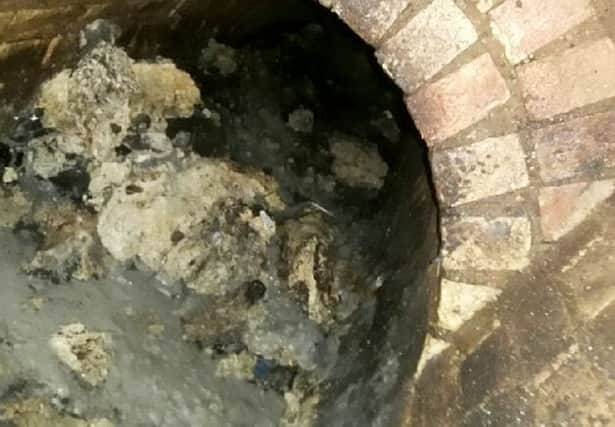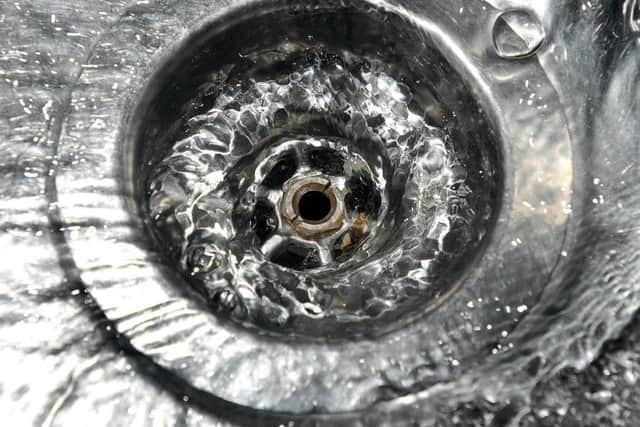Experts issue warning over Christmas fatbergs and how to avoid them


This is the warning being issued by rubbish removal experts Junk Hunters, who have explained how households can avoid clogging drains and sewers over the holiday period.
Knowing what not to put down sinks and toilets, and preventing grease and fat from going down the sink, are crucial actions for fighting fatbergs.
Advertisement
Hide AdAdvertisement
Hide AdThe team at Junk Hunters issued the guidance just as news broke that part of the famous “Whitechapel Fatberg”, which made international headlines, is to go on display at the Museum of London.


They explained that nothing should be flushed down the toilet except the ‘three Ps’ – pee, poo and (toilet) paper.
The Junk Hunters experts also gave advice on preventing oil from being washed down the sink and making simple grease traps.
Fatbergs are formed when cooking oil and grease mix with non-biodegradable items in the sewage system, and solidify to cause blockages.
Advertisement
Hide AdAdvertisement
Hide AdIt took Thames Water nine weeks to defeat the 130-ton Whitechapel Fatberg, which was subsequently turned into biodiesel.
With all the rich roasts being prepared over Christmas and New Year, the Junk Hunters experts urged householders to take their advice and avoid a repeat of the monster fatberg.
Harsha Rathnayake, CEO of Junk Hunters, said: “Christmas is a time for having fun, but fatbergs make everyone miserable, especially the sewage workers who have to literally break the awful things down.
“There’s no need to hold back in cooking – you can still have your delicious Christmas dinner exactly as you want it.
Advertisement
Hide AdAdvertisement
Hide Ad“Just take a few simple steps to make sure you don’t wash any fat or food leftovers down the sink.”
How to avoid a festive fatberg
Flush only the ‘three Ps’
Toilets and the sewage system are designed to take three things only – pee, poo and (toilet) paper. Don’t flush anything else – including baby wipes, kitchen roll, any sanitary products and cotton wool. Even nappies and tights have been found in the sewers, and needless to say, they don’t belong there.
Scrape plates
After Christmas dinner, scrape the plates and utensils well before washing them to get as much oil off as possible. Let the fat solidify first if that makes it easier to get rid of all of it.
Get a grease trap
You can get one installed, but a very simple alternative is to pour any oil and cooking fat into an empty milk container or margarine tub while it’s cooled but still liquid, and let it solidify in that rather than in your drains. Then chuck it away when it’s full. If you find there’s water collecting in the bottom, cut a hole in it and water your lawn before throwing it away.
Use the hair trap
Advertisement
Hide AdAdvertisement
Hide AdYou might be washing your hair more often than usual for all the seasonal parties. Make sure you’ve got a hair trap in your shower or bath plughole and throw the hair in the bin.
Don’t fall for the hot water myth
Some people might tell you that you can clear fat and oil from the drains by pouring hot water and washing up liquid down the sink. They’re wrong. Just don’t let fat go down there at all.